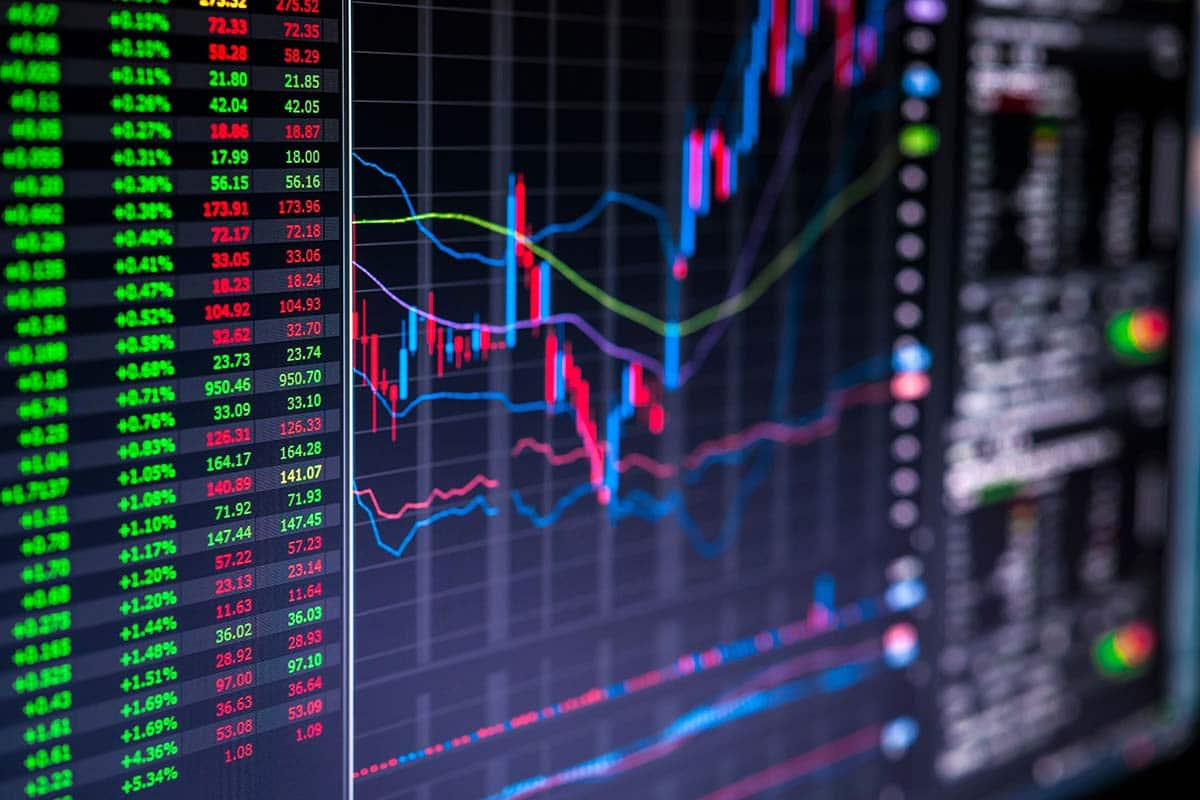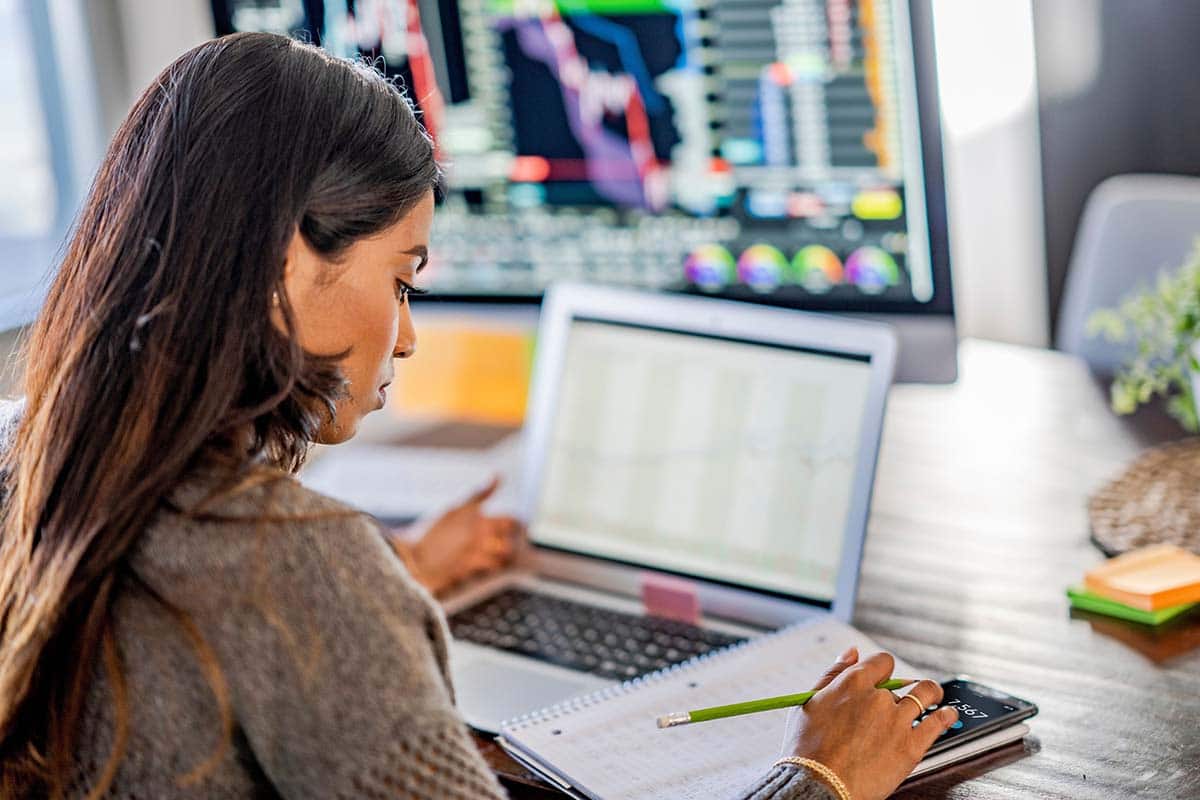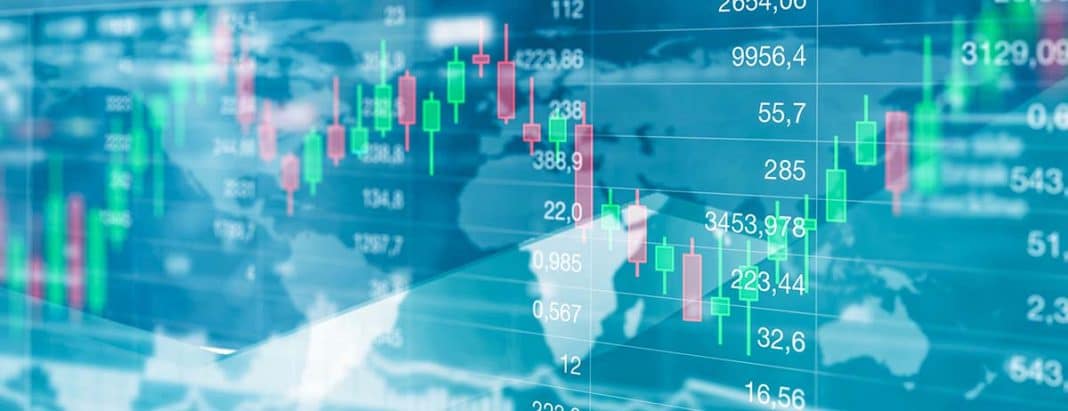The buying and selling of assets in a single day are known as day trading. Until recent decades, financial institutions, trading houses, and brokerages are the only active players in the stock market. But with technological advancement and the rise of the internet, several online trading platforms have emerged. Thus, it becomes straightforward for a regular investor to enter the game.
With guidance, strategy, and fund, day trading is a profitable financial operation. However, at the same time, budding traders may find it challenging without good preparation before joining the market. Hence, before getting into the game, it’s firmly recommendable to learn about day-trading and how it works.

This article includes sponsored links, for which we receive a small compensation if you use them at no cost for you.
What Is Day Trading?
The Basics
As mentioned earlier the purchasing and selling of underlying assets or security in a single day is known as day trading. Although you can perform day trading in any marketplace, stock markets and foreign exchange (forex) are the most common. Ordinarily, a day trader needs to be wise, educated with a quick-thinking ability. Also, you need to have a considerable fund to run trading daily. With a short-term strategy and high leverage, a trader can capitalize on small price movements in a highly liquid stock to make profits.
Day trading involves buying or selling a stock, ETF, or other financial instruments on the same day and closing the position at the end of the trading day. Day trading is the practice of buying and selling a security or stock within a specific time to make a profit. When a trader buys or sells security or makes short sales and then buys to cover his position on the same day, trading is considered day trading.
On What Is Day Trading Based?
As a day trader, you have to be familiar with events that could cause short-term market changes. Most renowned traders follow news and trends to make their moves. Other methods include economic statistics, interest rates, and corporate earnings. When these expectations are surpassed or failed, it affects the market significantly and could be a great benefit to the day traders.
How Do Stock Changes Effect?
There are two ways stocks can change. Firstly, when a trader notices a stock is moving high and believe that it will go higher during the day, they can buy the stock and sell once the stock is incredibly high. However, if the stock drops, they will lose money while making sales. Secondly, a trader can sense that a stock or currency will drop massively for the day and consequently short-sell it – otherwise known as betting against the stock. In this case, the day trader will gain by selling when the stock drops down.
Let Your Emotions Stay At Home
Sensing how the stocks will move and trading accordingly is how day trading works. Thus, a day trader needs to be innovative and not emotionally attached to the market’s volatility in the short term. When emotions are allowed, it can affect trading strategy and approach.
Day Trading Is No Part-Time Job
Before you start as a day trader, remember that day trading usually invests a considerable amount of time selecting trading opportunities and monitoring the resulting positions. Day trading is a full-time task, so you need to study charts and manage trades often in a single day.
The Classification As A Day Trader
Day traders are traders who make more than three-day actions in a certain period of five days with margin accounts. FINRA classifies a stock trader who performs four or more trading days a week with a margin account as a day trader. This behavior could mean buying and selling daily and trading on several days at the same time. Day trading is the practice of traders who conduct four – or more – trades on margin accounts. And the trader is classified as one who has made trades worth four or three – and – one – half – days in the last five days. However, some brokerages may be standard – one to four days of trades to identify a “day trader,” according to the Securities and Exchange Commission (SEC).
Which Day Trading Software Is Available?
Unlike before, several day trading software is available for trading. Below are top platforms to consider:
· eToro
eToro is a multi-asset platform that offers the ability to buy cryptocurrencies. Customers in the US can exchange cryptos, and users can enjoy live market rates and try out a variety of trading options. eToro has a graphical-intensive platform, which serves as a trading platform for cryptocurrencies. Stock trading is announced for the future and will come shortly. This platform allows you to place orders on cryptos on an existing e-Toro account.
You can access the trading platform immediately and start trading with over 100,000$ in the demo account. They facilitated everything for the user, so you do not have to navigate through endless trades. You can buy underlying cryptocurrencies, access margins-based trading, and much more. There are virtually low fees, commissions, or trading fees for eToro crypto trading.
Getting started: eToro
Disclaimer: eToro USA LLC; Virtual currencies are highly volatile. Your capital is at risk.
· TradeStation
Here is a platform that offers flexibility and convenient pricing plans. While TradeStation provides a commission for options at $0, for the first 10,000 shares per trader, traders get the same base commission for stocks and ETFs. With the fully optimized platform, a trader can use various technical indicators or develop their own. As an experienced trader, you can use the OptionStation Pro to set up traders and foresee a potential payoff.
· E-Trade
With a discounted commission structure on options, E-trade performs excellently. A broker can utilize wide-ranging fundamental research, including Thomson Reuters, Moody’s report, and the broker’s market commentary. Traders can use the Power E-trade platform to trade quickly and utilize over 100 technical studies to perform trading action analysis. As with TradeStation, E-trade offers a $0 base commission on stocks and ETFs.
· TD Ameritrade
Another well-known trading system is TD Ameritrade using the lauded trading platform known as thinkorswim. As a day trader, you can purchase or sell futures, futures options, and forex. Over 400 technical studies and several tools, including charting and trading simulators, are available for users. Fundamental research is also accessible on the platform. Furthermore, no base commission applies.
· Charles Schwab
Hardly will you find a more sophisticated broker than Charles Schwab. The trading platform offers wide-ranging research and competitive pricing. With its StreetSmart Edge Platform, traders can structure the layout based on the trading process, live CNBC coverage, and integrating news feed. Also, it is possible to develop complex options orders with all-in-one trade tickets. The platform helps traders get stock ideas using third-party research and screening tools from Schwab. As with other trading platforms herein, Charles Schwab doesn’t charge based commissions for stocks and ETFs.
How Does Day Trading Work?
What Are The Strategies of Day Traders??
Day traders can pursue different strategies and transactions. Ideally, they focus on stocks, futures, currencies, options, and commodities. As stated earlier, day traders often hold their positions only for minutes or hours before selling. Within a single day, day traders can enter positions and exit several times. However, unlike other traders, you’ll hardly see a day trader holding positions till the next day. In other words, the idea is to benefit from short-term price movements, which sometimes involve using leverage to amplify returns – or loss as the case may be.
How Do I Start Day Trading?
Day trading is not like a long-term investment that anyone could purchase shares and keep. Instead, a day trader needs to follow the Financial Industry Regulatory Authority (FINRA) rules for day traders. Before you can start, you need a minimum of $25,000 in your account to trade frequently. When your balance drops below the level, you cannot trade again. In other words, you need a sufficient balance to keep making a profit from day trading. Also, considering that you need to focus, it’s not recommendable to combine with the daily job. Additionally, you must be prepared to risk your capital to start trading. Access to the trading platform, tracking positions, researching, and logging trades are other necessary elements to commence day trading.
The Risk Of Day Trading
Day trading is risky. There are very emotional aspects of the trading process itself, which can lead to wrong decisions. You can lose all your money. It’s a fact that only five percent of the trader show measurable success, and only one out of ten day-traders make a profit out of trading that’s enough for a living. Keep in mind investing only money that you don’t need. It is essential to train in a simulator for a reasonable time until you can show yourself that you can be profitable. There are several providers for trading simulators. You have to understand the whole picture first before you try to invest real money.

The Bottom Line
And there you have the fundamentals about what day trading is and how it works. If you can put in the required effort, time, and funds to master day trading, it is a sustainable income source in the short and long term. All you need is to be prepared to take risks while getting accurate information and implementing a suitable strategy.




